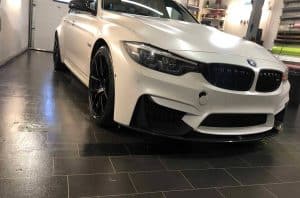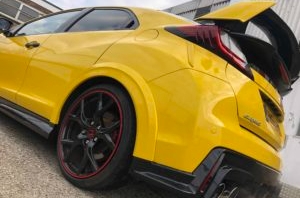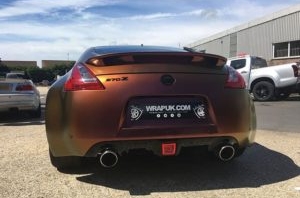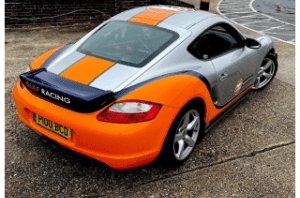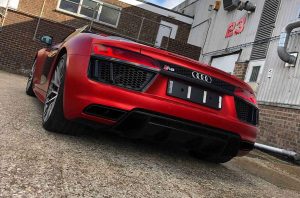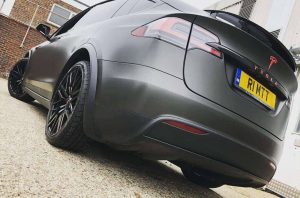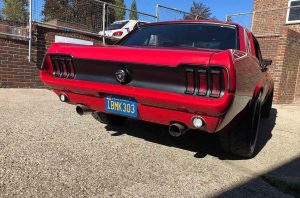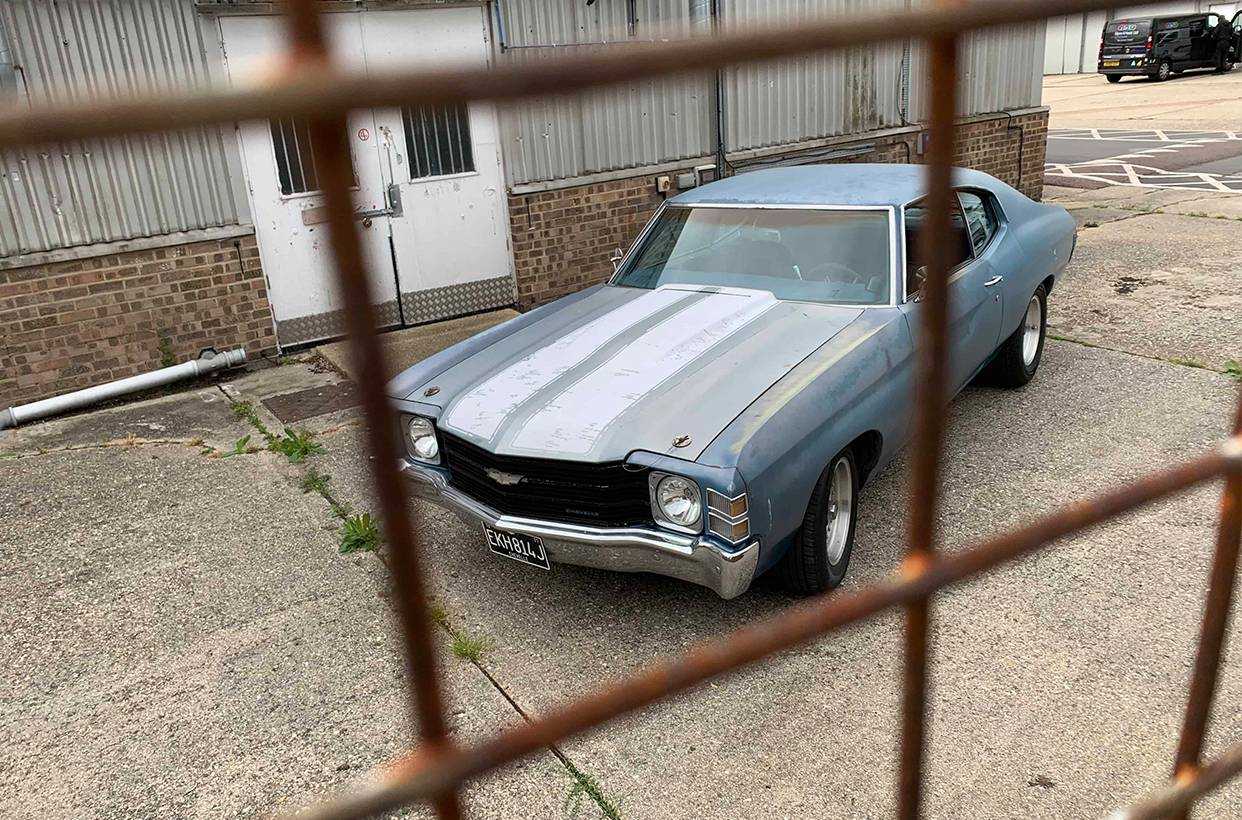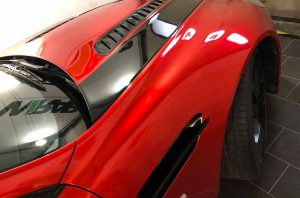CAR WRAPPING
Service
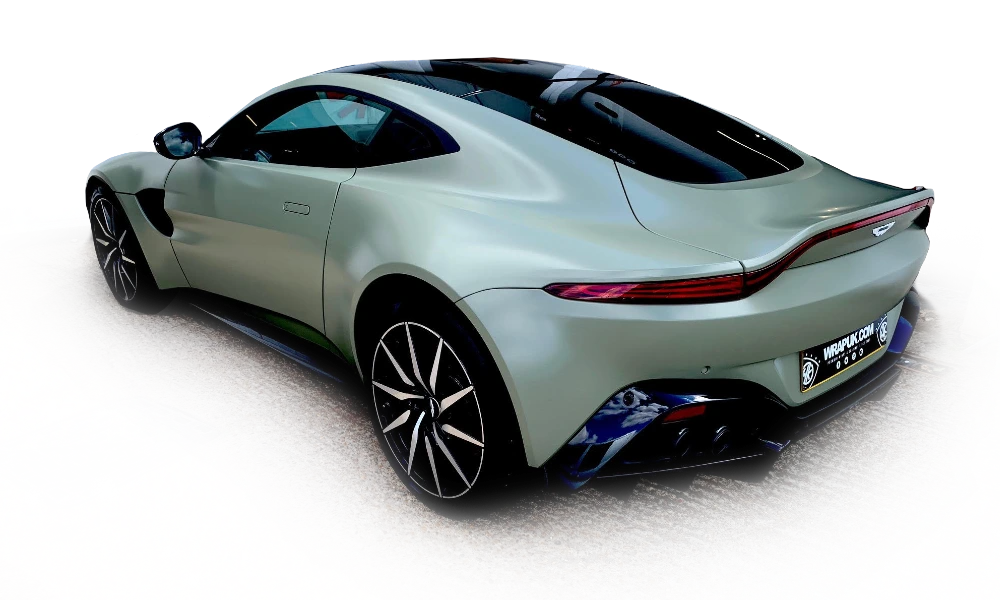
CAR WRAP Specialists
CAR WRAPPING VINYL
We can wrap cars with the most striking car graphics imaginable. These act as a design statement, a personal aesthetic, and create vehicle wraps that will be as unique as your own individual sense of style.
Whether you’re after a slick, contemporary vehicle wrap finish that stuns, or a vibrant, eye-catching car graphic, WrapUK has the skills, techniques and premium car wrap films to bring your vehicle wrapping inspiration to life.
Our team of experts work with a vast range of decals, top of the range vinyl brands and signage tools, giving us the scope and knowledge to bring any concept into reality and turn out extraordinary cars that will turn heads wherever you go.
As an authorised fitter of some of the most exceptional vinyl wrap brands in the vehicle wrapping world, we can recommend a range of car wrapping options to suit your ideas, and your budget – from respected manufacturers such as 3M, through to the astonishing ranges of tones and textures available by using Platinum Wrapping Film (PWF) – for awe-inspiring visual impacts.
Get in touch for advice about the ideal vinyl wrap for your vehicle wrapping, and we’ll recommend the right option for you – whether it’s a two-person supercar or a powerful all-terrain truck.
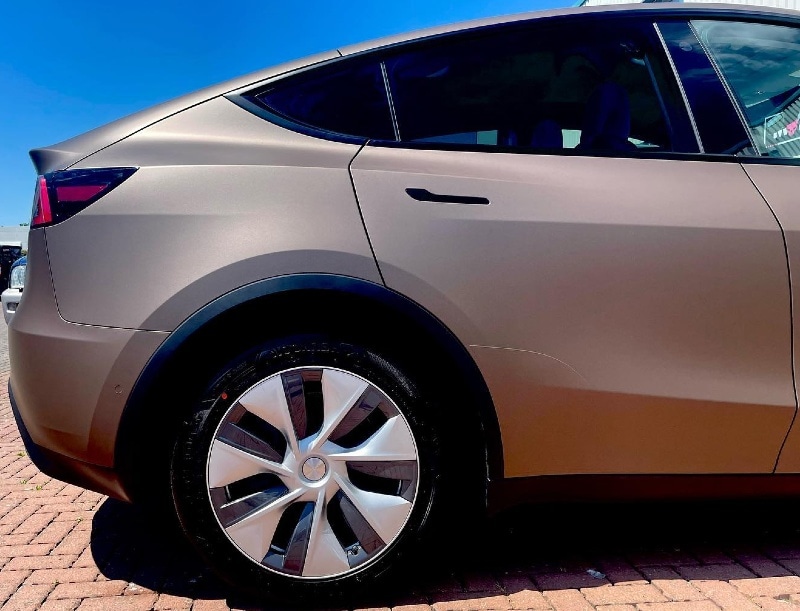
CAR WRAPS
CAR GRAPHICS
CAR DECALS
CAR VINYL GRAPHICS
CAR SIGNWRITING
PREMIUM CAR WRAPPING
We love working with the most advanced techniques to revitalise everyday cars into something unusual. Our teams also fit contemporary vinyl wrap to any range of supercars, trucks or classic vehicles, bringing them bang up to date without compromise.
Every move you make becomes impactful when you’re driving a vehicle in a different class – so talk to us about what ideas you have in mind, and let’s create something magical.
The average car on a commute passes by about 3,000 people an hour. If you spend time and effort on your vehicle, your driving time is transformed into an experience whereby you bring a fresh sense of style to the most ordinary roads.
WrapUK offers only the best, be that in ceramic coatings, vinyl wrap or custom decals, with finishes available in everything from high shine gloss vinyl film to deep metallics and sparkling pearlescent to smooth colour splashes.
There are no limits on what you can create when covering the original paintwork with an injection of polished perfection and the top car wrapping brands. WrapUK is always delighted to share our portfolio of outstanding car wraps, both to show you what is possible and to provide inspiration to help you decide on the image you’d like your car to project.
BENEFITS OF CAR WRAPPING
There are so many reasons to wrap your car; and it’s a great alternative to a permanent paint job, which leaves you without wheels for a significant amount of time and can be costly and time-consuming to change, remove, or upgrade.
Premium vinyl wraps are durable and hardwearing, designed for the most extensive journeys protecting from stone chips and yet making the paint protection film to your paintwork look effortless.
If you decide to change up your image, try out a new style, or incorporate a different sense of character, it’s as easy as removing your wrap and installing a new one; seamless, straightforward and to sensational effect.
This also retains the quality of the paintwork underneath the wrap, avoiding the issue of a custom paint job on a vehicle if you come to sell – which can be tough to restore.
We want every WrapUK client to take pride every time they sit behind the wheel and are committed to outstanding quality both in the finished result and in the service you receive.
From our base in West Sussex, we offer a first-class collection and delivery service at your convenience, to make your car wrapping experience a great one, with your satisfaction at the heart of all we do.
Contact our team to see how we can meet your unique vehicle wrapping requirements
Car Wrap Gallery
Car Wrapping FAQs
There are a few special considerations to keep in mind when decontaminating a car before wrapping:
-
- Be sure to use the appropriate cleaning products and tools for the job. Avoid using harsh chemicals or abrasive cleaning products, as these can damage the car’s paint or wrap.
- Pay particular attention to areas where dirt and grime tend to accumulate, such as the undercarriage, wheels, and door jams. These areas may require extra cleaning to ensure that the wrap adheres properly.
- Use a clay bar to remove any stubborn contaminants that are stuck to the car’s surface. This will help to ensure that the wrap adheres smoothly and evenly to the car’s surface.
To decontaminate a car before wrapping, you will need to follow these steps:
- Wash the car with a mild soap and a soft sponge or cloth. Be sure to pay particular attention to areas where dirt and grime tend to accumulate, such as the undercarriage and wheels.
- Dry the car thoroughly using a microfiber towel or chamois cloth.
- Use a clay bar to remove any stubborn contaminants that are stuck to the car’s surface. Simply glide the clay bar over the surface of the car, using a light mist of lubricant to help it glide smoothly.
- If the car has a particularly dirty or contaminated surface, you may need to use a tar and bug remover or a degreaser to remove any stubborn stains or deposits. Be sure to follow the manufacturer’s instructions when using these products.
- Can I decontaminate a car myself before wrapping?
It is generally possible to decontaminate a car yourself before wrapping. However, it can be a time-consuming and labor-intensive process, and it requires a certain level of attention to detail. If you are not comfortable or confident in your ability to clean and decontaminate the car properly, it may be a good idea to have a professional do it for you.
Decontaminating a car before wrapping helps to remove any dirt, dust, or other contaminants that may be present on the car’s surface. These contaminants can interfere with the wrap’s ability to adhere properly to the car, and may cause the wrap to peel or bubble over time. By thoroughly cleaning and decontaminating the car before applying the wrap, you can help to ensure that the wrap stays in place and looks its best for as long as possible.
It is generally possible to apply a car wrap to a car with a curved surface, such as a sports car or a convertible. However, it may be more challenging to get the wrap to conform to the curves of the car, and it may require more time and effort to achieve a smooth, seamless finish.
It is generally not recommended to apply a car wrap in rainy weather, as the wet surface of the car may make it difficult for the wrap to adhere properly. Additionally, the wet wrap material may be more difficult to work with and may be more prone to wrinkling or bubbling. It is best to wait for a dry day with moderate temperatures to apply a car wrap.
It is generally possible to apply a car wrap in cold weather, although the wrap may be more difficult to work with due to the cold temperatures. To make the process easier, it is recommended to warm up the wrap material before applying it, either by heating it with a heat gun or by leaving it in a warm area for a few hours before beginning the wrap.
Most car wraps are considered dry and ready for use as soon as they are applied. However, it is generally recommended to wait at least 24 hours before washing or waxing the wrapped car, to allow the wrap to fully adhere to the car’s surface.
The process for applying a car wrap typically involves the following steps:
1. Clean the car’s surface thoroughly to remove dirt, dust, and other contaminants.
2. Measure and cut the wrap material to the appropriate size and shape for the car.
3. Begin applying the wrap at the top of the car, working your way down to the bottom.
4. Use a heat gun or other heat source to help the wrap conform to the contours of the car.
5. Trim any excess wrap material and smooth out any wrinkles or bubbles.
It is generally possible to apply a car wrap over a vinyl wrap, although it is important to ensure that the vinyl wrap is in good condition and fully adhered to the car’s surface. If the vinyl wrap is peeling or damaged, it will need to be removed before the new wrap can be applied.
It is generally possible to apply a car wrap to a car that already has a wrap kit installed. However, the existing wrap kit will need to be removed first. This can be a time-consuming and labor-intensive process, and it is important to be careful to avoid damaging the paint underneath.
It is generally not recommended to apply a car wrap to a car with rust. This is because the wrap will not adhere properly to the rusted surface, and the rust may continue to spread beneath the wrap. It is important to repair any rust on the car before applying the wrap.
A car wrap can be applied over a car with chips or scratches, but the chips and scratches will still be visible beneath the wrap. If you are concerned about the appearance of chips or scratches, it may be necessary to repair or touch up the paint before applying the wrap.
It is possible to apply a car wrap to a car with a textured surface, such as a matte finish. However, the wrap may not conform as smoothly to the textured surface, and the final result may not be as seamless as it would be on a smooth surface.
It is generally possible to apply a car wrap to a car with aftermarket parts, such as spoilers or body kits. However, it may be necessary to remove the aftermarket parts before the wrap can be applied, depending on the size and shape of the parts.
It is generally not recommended to apply a new wrap over an existing wrap. This is because the old wrap will need to be removed first, which can be a time-consuming and labor-intensive process. Additionally, applying a new wrap over an old one can cause the new wrap to become uneven or bubbly.
The time it takes to apply a car wrap can vary depending on the size of the vehicle and the complexity of the wrap design. On average, it can take anywhere from 2-5 days to apply a full car wrap.
Most car wraps can be applied to any type of car, regardless of the make or model. However, it is important to ensure that the wrap material is compatible with the car’s surface and that the wrap can be properly stretched and contoured to fit the shape of the vehicle.
A car wrap can help to protect the paint underneath from UV radiation, road grime, and other environmental factors. However, it is not a permanent solution and will need to be replaced eventually.
It is usually ok to wrap a leased car in the UK. However, you should check the terms of your lease agreement to ensure that you are allowed to make modifications to the vehicle. You may also need to obtain permission from the leasing company before proceeding with the wrap. More people are considering a car wrap to protect the car from everyday scratches or damage during the lease period.
To ensure that your car wrap stays in good condition for as long as possible, it is important to follow these care instructions:
-
- Avoid washing the car with a high-pressure hose or power washer, as this can damage the wrap. Instead, use a low-pressure hose or hand wash the car using a soft sponge or cloth.
- Avoid using harsh chemicals or abrasive cleaning products, as these can also damage the wrap.
- Avoid waxing or polishing a matt wrap, gloss wraps are often enhanced with a wax.
- Avoid leaving the car in direct sunlight for extended periods of time, as this can cause the wrap to fade or peel.
- If the wrap becomes dirty or stained, use a mild detergent and a soft sponge or cloth to gently clean it.
It is generally not necessary to inform the DVLA (Driver and Vehicle Licensing Agency) about a car wrap. However, if the wrap significantly changes the appearance of the car, such as by altering its colour, it may be a good idea to notify the DVLA and insurance company to avoid any confusion or issues down the line.
Yes, it is legal to wrap a car in the UK. However, there are some restrictions on the types of wraps that are allowed. For example, wraps that obscure the car’s registration number, or that make the vehicle appear to be an emergency or official vehicle may be stopped by the police.
The cost of a car wrap can vary widely depending on the size of the vehicle, the type of wrap material used, the complexity of the design, plus whether you want handles and door enclosures finished too. On average, you can expect to pay between £1,500 and up to £10,000 for a full car wrap depending on materials and the detail specifications.
Short answer, yes! If a car wrap becomes damaged, it may be possible to repair it. Contact WrapUK or your installer for best advice.
Applying a car wrap can be a challenging and time-consuming process, even for professionals on occasion. It requires careful attention to detail and a steady hand to ensure that the wrap is applied smoothly and without any wrinkles or bubbles. It is typically best to have a professional install a car wrap to ensure that it is done correctly and the quality of the original bodywork and paintwork are quite important factors to consider..
Yes, car wraps can be removed. The process involves carefully peeling back the wrap and removing it from the car’s surface and this is an easy process when the work was completed on original manufacturers paintwork.
On average, a car wrap will last as long as 5-8 years.
To prepare the bodywork of a car before wrapping, you will need to follow these steps:
- Repair any chips or scratches in the car’s paint by filling them in with a touch-up paint or a clear coat.
- Repair any dents in the car’s body by pushing them out from the inside using a plunger or a special tool. If the dent is too large or severe to repair in this way, it may be necessary to have it professionally repaired.
- Remove any rust from the car’s body using a rust remover and a wire brush. Be sure to follow the manufacturer’s instructions when using these products.
- Sand the car’s body with fine-grit sandpaper to smooth out any rough or uneven surfaces.
- Clean the car’s body thoroughly using a mild soap and a soft sponge or cloth. Be sure to pay particular attention to areas where dirt and grime tend to accumulate, such as the undercarriage, wheels, and door jams.
It is important to take the time to properly prepare the bodywork of a car before applying a wrap, as this will help to ensure that the wrap adheres smoothly and evenly to the car’s surface. If you are not comfortable or confident in your ability to prepare the bodywork yourself, it may be a good idea to have a professional do it for you.
It is generally possible to apply a ceramic coating to a car wrap. A ceramic coating is a thin, transparent layer of ceramic that is applied to the surface of a car to protect the paint and wrap from environmental contaminants and UV radiation.
What Our Clients Say
Wrap Quote
Provide us some base information to get your quote ASAP.

